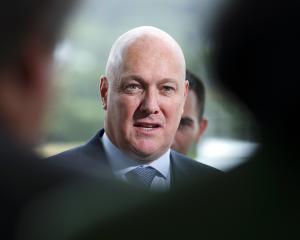Another summer in the South will inevitably bring another series of serious road accidents, as well as numerous ideas to address our road toll tragedy. We don't need new ideas. We need maturity.
While New Zealand's road toll had been steadily trending downwards since 1990, that changed in the past five years. From a low of 253 deaths in 2013 the road toll has increased every year since, with last year's 380 deaths the highest since 2009. This year may end up being worse.
The Government announced a $1.4 billion programme earlier this month to improve the safety of the country's roads over the next three years. The money will be spent on improvements, including median and side barriers, rumble strips, and shoulder widening - all of which should help.
Meanwhile, calls to lower the current 100kmh open road speed limit continue, with a 70kmh limit on rural roads suggested by the International Transport Forum (ITF) earlier this year. Such calls meet stiff resistance - as drivers we seem to consider the 100kmh open road limit a birthright. It is high by international standards, while many of our rural roads are poor.
They are often winding and narrow, with off-camber corners and infrequent passing lanes. Yet, they host a large fleet of tourist drivers - many driving unwieldy vehicles on what they consider to be the ''wrong'' side of the road. Our sparsely populated region means traffic accidents often occur a long way from emergency services.
The climbing road toll comes despite our cars and roads constantly improving, our driver education being far better than it was a generation ago, and vast sums of public money being spent on safe-driving education and road policing.
Our road accidents cost even more - a bill estimated by the ITF to be 1.7% of our country's earnings in 2016. The cost to affected families, communities and those tasked with attending serious accidents cannot be quantified on a balance sheet.
Our road toll is without positives. It is a tragic, expensive and unnecessary cost to our people and our economy, and the responsibility is ours alone.
The way we drive is too often not good enough. We love our cars, we learn to drive on difficult, testing roads and, for the most part, we drive well. Yet, the tragedies lie in the margins: when we're tired; when we're running late; when the roads are wet, busy, or unfamiliar. Those margins can be the norm over the summer holidays.
Traditionally, as the summer road toll rises, we heap culpability on tourists, road designers or maintenance budgets, while happily barrelling along our highways - which are often little more than narrow, winding country roads - well above the speed limit. We treat those speed limits as targets. They are not, nor have they ever been.
They exist alongside the assumption motorists are mature enough to understand the dangers of driving and the basics of physics, and drive accordingly. Too often, we do not.
At the same time many choose to drive far slower than the speed limit, for various reasons. Yet whether it be habit, ignorance, pride or worse, we refuse to pull over and let cars pass, or we speed up on the rare passing lanes.
We can do far better and we must. There will be close to 400 people killed on our roads this year. Virtually every one of those deaths could be considered avoidable. We march, donate, pay tax and accept all manner of legislation to demand our lives be safer.
Yet on the roads we seem unwilling to slow down even a little, or show just a little humility to our fellow motorists.
Bad driving should be considered a national embarrassment. As drivers, we can change that by assuming no-one but ourselves is responsible for the road toll these holidays.












